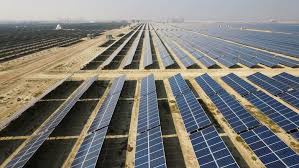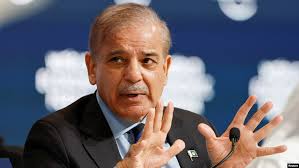
Commitment to Sustainable Development
In a major push toward sustainability, the Pakistani government has announced plans to invest heavily in new renewable energy sources. With a growing demand for energy and increasing concerns over climate change, Pakistan is looking to diversify its energy mix by reducing its dependence on fossil fuels. The government’s new initiative focuses on harnessing the power of wind, solar, and hydroelectric energy to provide clean, sustainable, and affordable electricity to meet the needs of the population. This investment aligns with Pakistan’s broader goal of achieving a greener, more energy-efficient future while addressing its environmental and energy challenges.
Expanding Solar and Wind Power Projects
As part of its renewable energy strategy, the government is prioritizing the expansion of solar and wind power projects across the country. With abundant sunshine and favorable wind conditions in several regions, Pakistan has vast untapped potential for both solar and wind energy generation. The government plans to establish large-scale solar farms and wind turbine installations, particularly in the southern and coastal areas of the country. These projects will not only help meet the energy demands but also create jobs, boost local economies, and reduce the country’s carbon footprint. Investment in these technologies is expected to significantly reduce energy imports, further enhancing energy security.
Strengthening Hydro and Biomass Energy
In addition to solar and wind power, Pakistan is also focusing on strengthening its hydroelectric and biomass energy capacity. The government has identified several new hydroelectric projects, especially in the northern and mountainous regions, where rivers can be harnessed for power generation. Biomass, sourced from agricultural and industrial waste, also holds great promise as a renewable energy source. These initiatives will allow Pakistan to diversify its energy production, reduce reliance on coal and natural gas, and make strides toward achieving energy self-sufficiency. The diversification of renewable energy sources will contribute to the country’s long-term energy security while addressing environmental concerns.
Promoting Private Sector Investment
To accelerate the transition to renewable energy, the Pakistani government is actively encouraging private sector participation. Through a combination of incentives, including tax breaks and subsidies, the government aims to attract both local and foreign investors into the renewable energy market. Public-private partnerships will play a crucial role in financing and developing large-scale renewable energy projects. The government is also working to streamline regulations and reduce bureaucratic hurdles, ensuring a conducive environment for business ventures in the energy sector. By facilitating the growth of the renewable energy market, Pakistan hopes to foster innovation, reduce energy costs, and create sustainable jobs in the green economy.
Long-Term Environmental and Economic Benefits
The long-term benefits of investing in renewable energy are expected to be far-reaching. Economically, renewable energy projects are set to create thousands of jobs in manufacturing, construction, and maintenance, contributing to national economic growth. The reduction in energy costs and improved energy security will also create a more stable and competitive economy. Environmentally, these projects will help Pakistan meet its international climate commitments, reducing greenhouse gas emissions and mitigating the effects of climate change. With this bold step, Pakistan is not only improving its energy infrastructure but also setting a sustainable path toward a cleaner, greener, and more prosperous future.
Master chess and start earning today with our detailed tutorial

